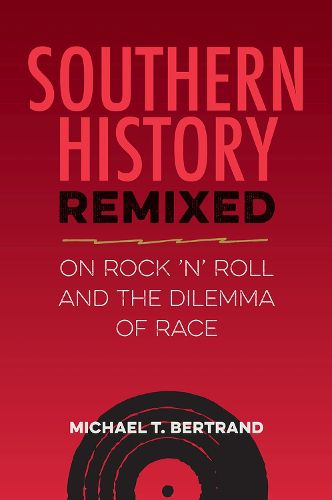Readings Newsletter
Become a Readings Member to make your shopping experience even easier.
Sign in or sign up for free!
You’re not far away from qualifying for FREE standard shipping within Australia
You’ve qualified for FREE standard shipping within Australia
The cart is loading…






This title is printed to order. This book may have been self-published. If so, we cannot guarantee the quality of the content. In the main most books will have gone through the editing process however some may not. We therefore suggest that you be aware of this before ordering this book. If in doubt check either the author or publisher’s details as we are unable to accept any returns unless they are faulty. Please contact us if you have any questions.
Southern History Remixed spotlights the key role of popular music in the shaping of the United States South from the late nineteenth century to the era of rock 'n' roll in the 1940s, '50s, and '60s. While musical activities are often sidelined in historical narratives of the region, Michael Bertrand shows that they can reveal much about social history and culture change as he connects the rise of rock 'n' roll to the civil rights movement for racial equality.
In this book, Bertrand traces a long-term culture war in which white southerners struggled over the region's cultural complexion with music serving as an engine that both sustained and challenged white supremacy. He shows how rock 'n' roll emerged as a working-class genre with biracial sources that stoked white racial anxieties and engaged the region's color and culture lines. This book discusses the conflict over southern identity that played out in responses to jazz, barn dance radio, Pentecostal and gospel music, Black radio programming, and rhythm and blues, concluding with a close look at the popularity of Elvis Presley within a racially segregated society.
Southern History Remixed suggests that both Black and white southerners have used music as a tool to resist or negotiate a rigid regional hierarchy. Urging readers and scholars to take the study of popular music seriously, Bertrand argues that what occurs in the music world affects and reflects what happens in politics and history.
$9.00 standard shipping within Australia
FREE standard shipping within Australia for orders over $100.00
Express & International shipping calculated at checkout
This title is printed to order. This book may have been self-published. If so, we cannot guarantee the quality of the content. In the main most books will have gone through the editing process however some may not. We therefore suggest that you be aware of this before ordering this book. If in doubt check either the author or publisher’s details as we are unable to accept any returns unless they are faulty. Please contact us if you have any questions.
Southern History Remixed spotlights the key role of popular music in the shaping of the United States South from the late nineteenth century to the era of rock 'n' roll in the 1940s, '50s, and '60s. While musical activities are often sidelined in historical narratives of the region, Michael Bertrand shows that they can reveal much about social history and culture change as he connects the rise of rock 'n' roll to the civil rights movement for racial equality.
In this book, Bertrand traces a long-term culture war in which white southerners struggled over the region's cultural complexion with music serving as an engine that both sustained and challenged white supremacy. He shows how rock 'n' roll emerged as a working-class genre with biracial sources that stoked white racial anxieties and engaged the region's color and culture lines. This book discusses the conflict over southern identity that played out in responses to jazz, barn dance radio, Pentecostal and gospel music, Black radio programming, and rhythm and blues, concluding with a close look at the popularity of Elvis Presley within a racially segregated society.
Southern History Remixed suggests that both Black and white southerners have used music as a tool to resist or negotiate a rigid regional hierarchy. Urging readers and scholars to take the study of popular music seriously, Bertrand argues that what occurs in the music world affects and reflects what happens in politics and history.